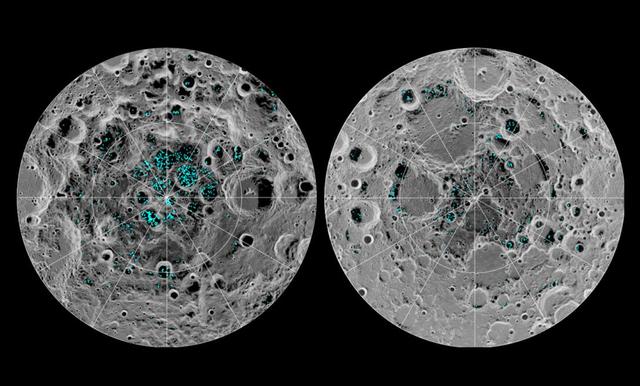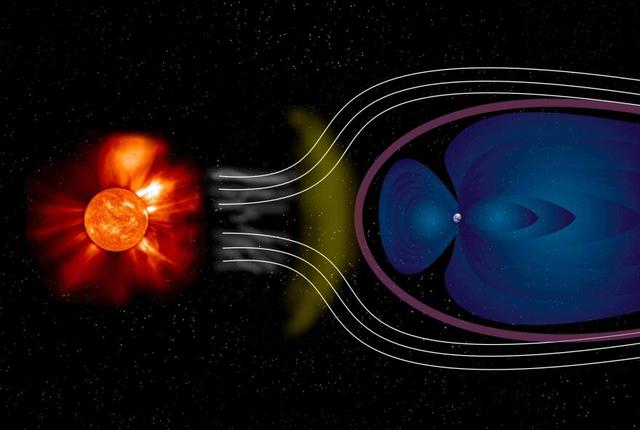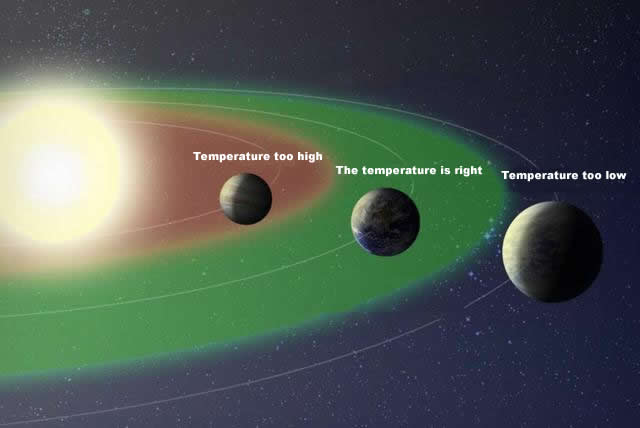According to our knowledge of known life, liquid water is essential for life. In other words, if there is liquid water on a planet, there is a possibility of life, and it is for this reason that scientists always consider liquid water as the first requirement when assessing the possibility of life on a planet.
Stars in the universe are 'big balls of fire', emitting a lot of light and heat into space at all times. This area is known as the 'habitable zone' and is neither too cold nor too hot to allow liquid water to exist.

One of the reasons why the earth is such a vibrant planet is that it is located in the habitable zone of the solar system. But what is puzzling is that the moon, which is only about 380,000 kilometres away from the earth on average, is also located in the habitable zone of the solar system, but there is no life on the moon and it is dead, so to speak.
Why is the moon dead, when the earth is also located in the solar system's habitable zone? One simple answer is that there is no liquid water on the moon. Well, we just said that liquid water can exist in the habitable zone, so why doesn't that apply to the moon? Actually, this is explainable.

Given the problem of water loss, it is not difficult to speculate that there would have been much more water on the moon in the distant past than there is now, and that if the moon had a proper atmosphere at that time as well, there could have been plenty of liquid water on the moon, in which case the moon could have been a vibrant planet like earth.
In fact, the scientific community has indeed suggested such an idea, for example, in 2018, astrobiologist dirk schulze markuch of washington state university had published a paper in astrobiology claiming that life could have existed on the moon in the distant past.
In the paper, he states that according to the "Grand collision hypothesis", the moon was formed by the impact of theia (a primitive planet about the size of mars) with the earth, and that during the formation of the moon, large amounts of superheated gas, including water vapour, were released from the moon's during the formation of the moon, large amounts of superheated gas, including water vapour, would have been released from the moon's interior and formed a dense enough atmosphere that, after gradually cooling, the moon's surface could have formed a large collection of liquid water, thus making the moon ready for life.

So the question arises, if life was possible on the moon in the distant past, why is the moon now dead? Let us turn our attention to the sun.
While the sun emits light and heat, it also "Emits" Large streams of high-speed charged particles in all directions, also known as the "Solar wind", which in the habitable zone of the solar system can reach in the habitable zone of the solar system, the "Solar wind" Can reach speeds of over 400 kilometres per second and, without protection, a planet's atmosphere can be "Blown" Away by the "Solar wind" On a continuous basis.
Fortunately, our planet has a magnetic field strong enough to "Deflect" The flow of high-speed charged particles from the sun, so that the earth's atmosphere is protected from the "Solar wind".

The earth has a strong magnetic field because it has a hot core, and because the earth is large enough and massive enough, and because there is a significant amount of radioactive elements in its core, that when these elements decay, they replenish the heat in the earth's core, so that the temperature of the earth's core does not drop easily, so that after billions of years, the earth's core can still remain hot. Remain hot after billions of years.
The moon, however, is not as fortunate as the earth; in addition to being much smaller than the earth, it has far fewer radioactive elements inside it (because, according to the "Grand collision hypothesis", the moon was formed mainly from the earth and the moon's core temperature drops very quickly (compared to the earth's) because, according to the "Grand collision hypothesis", the outer layers of the earth and theia are the main sources of material, and the radioactive elements are concentrated in the cores of these two planets.)
Although the moon also had a hot core at the beginning of its formation, and possibly a strong enough magnetic field as a result, the temperature of the moon's core continued to drop and its magnetic field weakened over time, and scientists estimate that the moon's core cooled completely about 3.6 billion years ago, meaning that the moon has since lost its magnetic field.

Conceivably, without the protection of the magnetic field, the "Solar wind" Could have driven in and the moon's atmosphere (if there was one) would soon have been stripped away, and without it, there would have been no liquid water on the moon and life would have been impossible. Vibrant planet, it would become dead.


